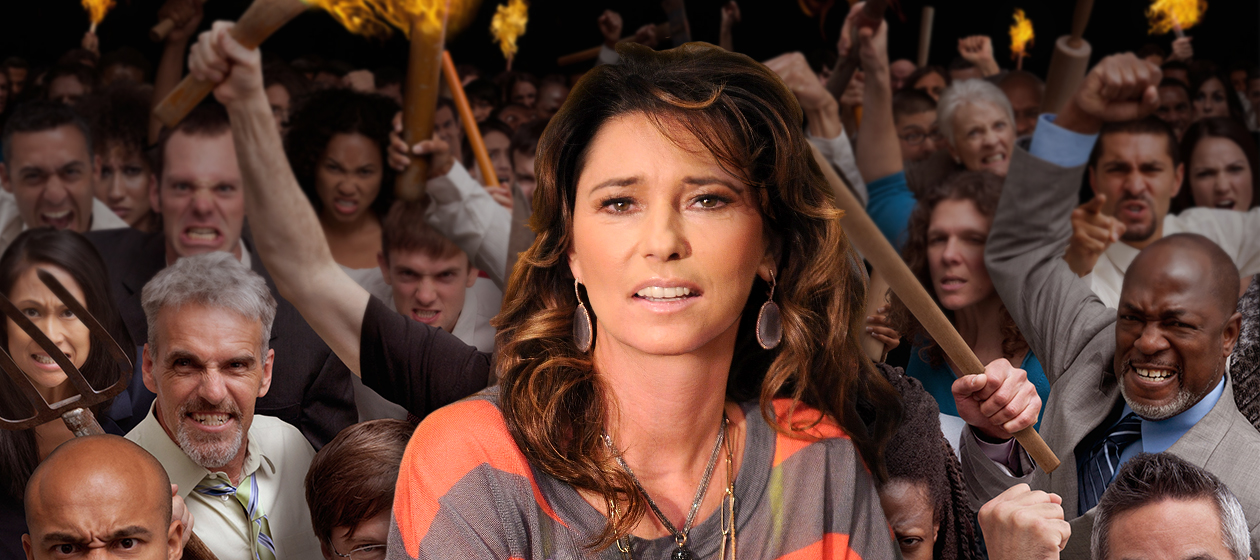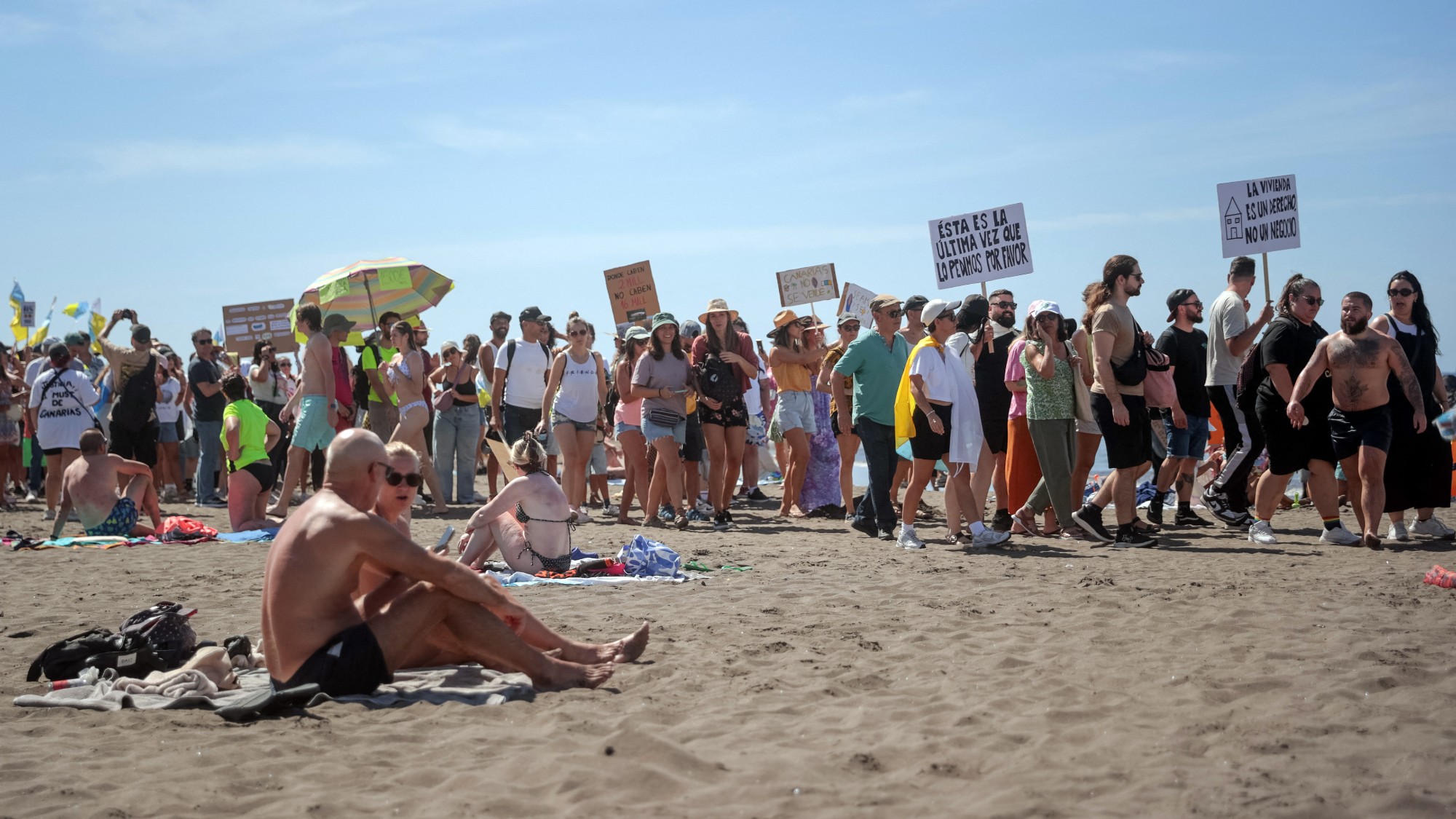Don't shame Shania Twain
Don't be stupid. The bestselling singer hasn't done anything wrong.


If you're like most people, you probably haven't thought much about Shania Twain since before the start of the Iraq war. But now the bestselling songstress responsible for that unimpeachable classic "That Don't Impress Me Much" is being cast by the media and its liberal criers on Twitter as one of the English-speaking world's foremost reactionaries, indeed possibly the least woke Canadian in recorded history.
The Observer — the Sunday sister paper of Britain's The Guardian — recently ran a profile of Twain. It was a fascinating piece of journalism, at times very sad but ultimately moving. It shows us that, among other things, Twain is very much the character she plays in her songs: a charming, tough-minded, witty lady who doesn't care terribly much what you think because she is too busy exercising her "prerogative to have a little fun."
Unfortunately, the only takeaway from the nearly 3,000-word piece as far as millions of Americans are concerned is the fact that, towards the end, she admitted that in a hypothetical world in which she were eligible to vote in American elections she would have pulled the lever for President Trump. "I would have voted for him because, even though he was offensive, he seemed honest," Twain said. "Do you want straight or polite? Not that you shouldn't be able to have both. If I were voting, I just don't want bullshit. I would have voted for a feeling that it was transparent. And politics has a reputation of not being that, right?"
Subscribe to The Week
Escape your echo chamber. Get the facts behind the news, plus analysis from multiple perspectives.

Sign up for The Week's Free Newsletters
From our morning news briefing to a weekly Good News Newsletter, get the best of The Week delivered directly to your inbox.
From our morning news briefing to a weekly Good News Newsletter, get the best of The Week delivered directly to your inbox.
It is difficult to imagine how anyone could be surprised by this. Did the singer of "Man, I Feel Like a Woman," slamming shots with her friends in "Men's shirts / Short skirts," strike you as the kind of woke Refinery 29 editorial assistant who tweets excerpts from Hillary Clinton's books in between looking up the Workout of the Day on Crossfit.com? Please. Besides, she's worth a reported $350 million and probably wants those tax cuts.
After the piece became available online, thousands of supposed fans tweeted at her to express their displeasure, many threatening to boycott her upcoming tour of the United States. Kathy Griffin whined at her, and so did a purported comedian called Billy Eichner. By Monday morning, Twain had issued an absurd statement via Twitter in which she apologized for her "offense" and made the bizarre claim that she was "passionately against discrimination of any kind."
Why does any of this matter? The point is not that hundreds of thousands of Americans are still crying themselves to sleep because Trump is president. Of course they are, which is why the DNC is suing a progressive transparency watchdog group and a large Eurasian republic and why one Kanye West tweet about a Breitbart scribe can inspire a thousand takes overnight. This is not important.
What is important, and what has been almost entirely ignored, is the sadness of Twain's life revealed in the profile and what our insistence on howling about Trump instead says about us.
Born Eilleen Regina Edwards, she grew up in Ontario with a violent alcoholic stepfather who was frequently unemployed. She claims that around a third of her family members committed suicide. Others died from drinking too much or at the hands of neglected parents. She once witnessed her stepfather knock her mother unconscious and shove her head in a toilet. On another occasion she saw her mother break a chair over his back. As a child she used to sneak into the bedrooms of everyone else in the house to make sure they were still breathing. She also alleges that her stepfather abused her, emotionally, physically, and, beginning at age 10, sexually. The last of these is something that she has never discussed in public before the recent interview, but she feels comfortable speaking about it now because, she says, "It's important that people understand you can survive these things."
Last summer it was considered major news that the creators of Stranger Things shouted at members of the crew, some of whom happened to be women, on the set of their hit television show. Only a few months later the bestselling female artist in musical history admits that she was raped by her stepfather and it hasn't made a single headline. Instead she is forced to draft robotic-sounding pseudo-apologies ("My path will always be one of inclusivity"). Is the fact that Twain holds a meaningless political position really more important than the story of how she was able to overcome a horrific childhood, the pitfalls of success, a nearly career-ending health crisis (she was diagnosed with Lyme disease some years back), and continue to make music that ordinary people care about, all while continuing to be a mother?
What were #MeToo and the so-called Weinstein effect really about? Painful as it is to admit, I think it looks increasingly likely that they were another soon-to-be forgotten addition to the ceaseless noise of contemporary discourse, not evidence of a widespread desire to come to terms with the reality of evil.
A free daily email with the biggest news stories of the day – and the best features from TheWeek.com
Matthew Walther is a national correspondent at The Week. His work has also appeared in First Things, The Spectator of London, The Catholic Herald, National Review, and other publications. He is currently writing a biography of the Rev. Montague Summers. He is also a Robert Novak Journalism Fellow.
-
 How drone warfare works
How drone warfare worksThe Explainer From Ukraine to Iran, it has become clear that unmanned aircraft are rapidly revolutionising modern warfare
-
 The tourist flood in the Mediterranean: can it be stemmed?
The tourist flood in the Mediterranean: can it be stemmed?Talking Point Finger-pointing at Airbnb or hotel owners obscures the root cause of overtourism in holiday hotspots: unmanageable demand
-
 5 warmongering cartoons about congressional approval
5 warmongering cartoons about congressional approvalCartoons Artists take on the War Powers Act, media bias, and more
-
 The JFK files: the truth at last?
The JFK files: the truth at last?In The Spotlight More than 64,000 previously classified documents relating the 1963 assassination of John F. Kennedy have been released by the Trump administration
-
 'Seriously, not literally': how should the world take Donald Trump?
'Seriously, not literally': how should the world take Donald Trump?Today's big question White House rhetoric and reality look likely to become increasingly blurred
-
 Will Trump's 'madman' strategy pay off?
Will Trump's 'madman' strategy pay off?Today's Big Question Incoming US president likes to seem unpredictable but, this time round, world leaders could be wise to his playbook
-
 Democrats vs. Republicans: who are the billionaires backing?
Democrats vs. Republicans: who are the billionaires backing?The Explainer Younger tech titans join 'boys' club throwing money and support' behind President Trump, while older plutocrats quietly rebuke new administration
-
 US election: where things stand with one week to go
US election: where things stand with one week to goThe Explainer Harris' lead in the polls has been narrowing in Trump's favour, but her campaign remains 'cautiously optimistic'
-
 Is Trump okay?
Is Trump okay?Today's Big Question Former president's mental fitness and alleged cognitive decline firmly back in the spotlight after 'bizarre' town hall event
-
 The life and times of Kamala Harris
The life and times of Kamala HarrisThe Explainer The vice-president is narrowly leading the race to become the next US president. How did she get to where she is now?
-
 Will 'weirdly civil' VP debate move dial in US election?
Will 'weirdly civil' VP debate move dial in US election?Today's Big Question 'Diametrically opposed' candidates showed 'a lot of commonality' on some issues, but offered competing visions for America's future and democracy
